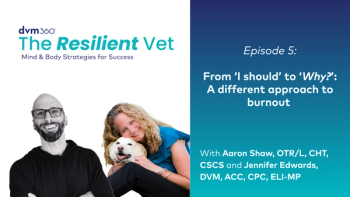
Am I ready to be a veterinary practice owner?
If you have to ask, associate, the answer is "no." Just kidding. Take this quiz.
Editor's Note: This is adapted from Your Veterinary Practice: Buying, Selling & Merging (Simmons Educational Fund).
Everyone struggles with tough buying decisions sometimes, and one of the biggest ones veterinarians will face in their lifetime is buying or starting a practice of their own.
You know there are several ownership options available: buy an existing practice, start a new one, buy in as a partner or start as an associate and buy in over time. You'll be influenced by your current job, level of motivation, start-up capital and other resources. But your very first step is to decide whether you're ready.
That's where the quiz in the link below comes in. It's a short roadmap to figure out whether you feel confident, comfortable and skilled enough to tackle practice ownership.
You can see from the frank questions in this quiz that the decision to buy or start a practice is not to be taken lightly. There are probably many issues you hadn't considered.
The goal here is not to evaluate your level of commitment; that's for you to do. Rather, you should consider these questions, and then use your answers to do a self-evaluation you share with your mentor, spouse and trusted friends.
Don't be afraid to ask for help. After all, you're venturing into a prestigious and difficult field that will demand more of your time, energy, money and other resources than you ever thought possible. What's more, practice owner pay isn't that of a Wall Street CEO.
That's not to say being a successful veterinarian is a thankless job; it's not. It's a rewarding one-personally, professionally and often financially. Just make sure you've got all the right reasons to venture into practice ownership.
Dr. Byron Farquer, Dr. Doyle Watson and David McCormick work for the veterinary practice appraisal and brokerage firm Simmons & Associates.
Newsletter
From exam room tips to practice management insights, get trusted veterinary news delivered straight to your inbox—subscribe to dvm360.






